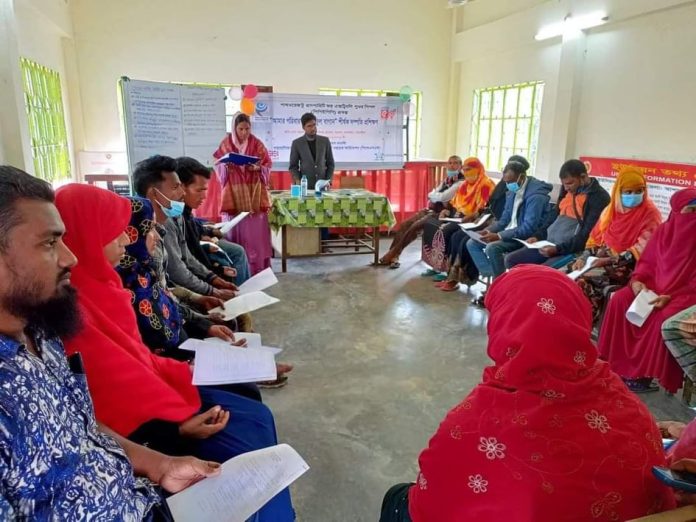To establish an enduring relationship between men and women, it is essential to eliminate the many prevailing prejudices in society and improve gender relations through male engagement. With this vision in mind, Prosperity project focuses on establishing women’s social status and building their decision-making capacity in their family through: a) financial inclusion and b) awareness building through training on a range of activities.
“People sometimes say: ‘You are a girl, and your job is to do the household chores. What is your business outside the home?’ Girls going to places or earning for the family is still not well taken. I hope this training helps change women’s role in the family,” said Rozina Khatun, 37, a project member from Satkhira’s Kadakati union.
She recently attended a five-day training titled ‘My family, my flower garden,’ an innovative awareness-raising initiative taken up by the project to sensitise both men and women on gender equality and women empowerment.
During the training, couples learn about various issues and perform various role-based activities. Issues discussed in the training include:
✓ Gender discrimination in food and nutrition
✓ Gender discrimination in healthcare and treatment
✓ Gender discrimination in work, rest, and recreation
✓ Use, control and ownership of assets
✓ Women’s role in decision making
✓ Domestic abuse and violence against women and children
✓ Access to public and private services
✓ Women and disaster management
After the training, the participating couples make a list of commitments to promote and ensure gender balance and equality through their daily activities in the family. They hang the list in their homes as a reminder of their commitment.
“If girls are respected and supported, they can also be a part of the family’s development. This is an important takeaway for me from this training,” said Bablu Gazi, 48, husband of a Prosperity member from Satkhira, who recently took part in a couple training.
These training sessions are expected to reduce gender discrimination both in households and in the larger community and increase men’s engagement, which is a key step to ensure women’s empowerment both in terms of financial freedom and decision-making role.


